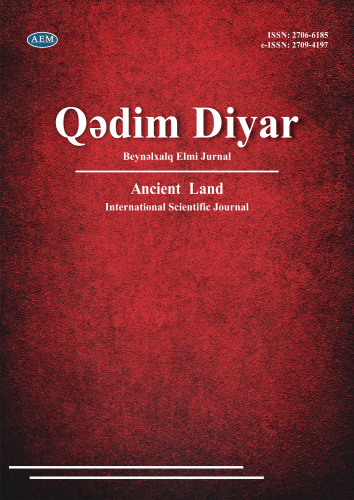DOI: https://doi.org/10.36719/2706-6185/46/110-121
Moussa Maireche
Abbas Laghrour University Khenchela, Algeria
https://orcid.org/0009-0003-0163-8938
momaireche@univ-khenchela.dz
Menar Maireche
Hassiba Ben Bouali University Chlef, Algeria
https://orcid.org/0009-0006-8566-5133
memaireche@gmail.com
The Problem of Lying in Augustine's Philosophy Critical
and Analytical Research
Abstract
This research paper aims to examine a significant issue that concerned Augustine in many of his writings and intrigued him due to the epistemological questions it raised regarding the understanding of Christianity: the issue of lying. Augustine discussed this subject to resolve apparent contradictions in certain Biblical texts and to address the conflict between Paul and Peter in interpreting these texts. By exploring his analysis, we seek to understand Augustine’s approach to the topic and the conclusions he reached.
The issue of lying is notably important and complex because of the beliefs, attitudes, and actions influences, all of which are directly tied to human behavior across all times. Exploring this issue, especially regarding its legitimacy and boundaries, can help answer various pressing questions that confront humanity, regardless of one’s beliefs, be they Christian, adherents of other faiths, or even those lacking faith. These questions include those related to the nature of lying, its extent, legitimacy, and the outcomes associated with it.
To accomplish this, we return to Augustine’s sources on the topic as a whole, rather than limiting ourselves to his works “About Lying” and “Against Lying”, as many studies do. Instead, we examine sources where he addressed the topic indirectly, offering a more comprehensive view.
This study employs a critical analytical method, which not only involves analyzing Augustine’s view but also evaluating and reconstructing it, providing a nuanced and insightful perspective rather than a mere summary.
Keywords: Augustine, lying, Against Lying, the legitimacy of lying, forms of lying

